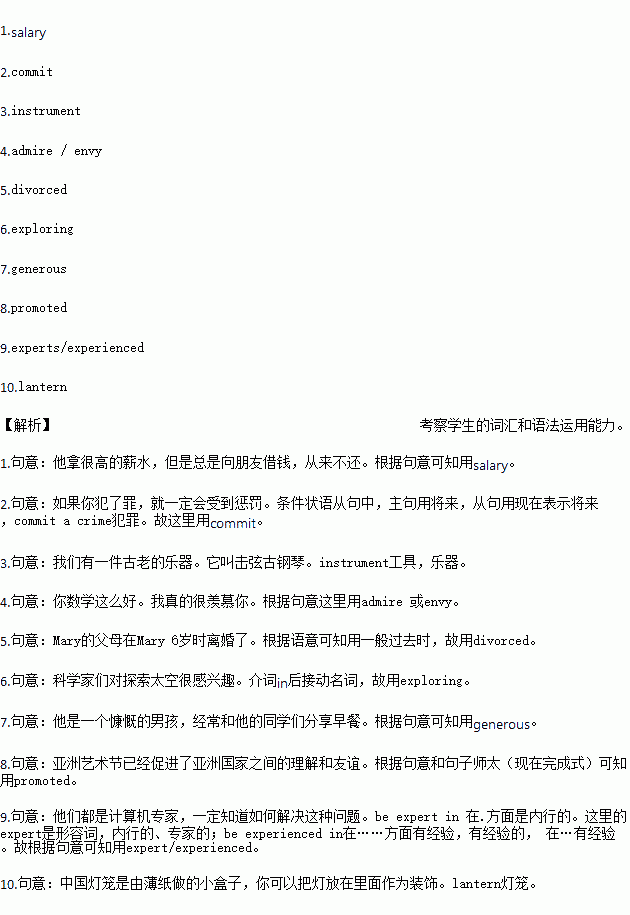题目内容
1.He gets a good (薪水), but he always borrows money from his friends and never pays it back. (新概念2)
2.If you (犯下) a crime, you will surely get punishment.
3.We have an old musical (乐器). It is called a clavichord.. (新概念2)
4.You’re doing so well in Mathematics! I really (羡慕) you.
5.Mary’s parents _____________ (离婚) when she was six.
6.Scientists are very interested in e___________ (探索) space.
7.He is a g boy and often shares his breakfast with his classmates.
8.The Asia Art Festival has p__________ understanding and friendship between Asian countries.
9.They are all e in computer and surely know how to solve this kind of problem.
10.Chinese l____________ is a small box made of thin paper that you put a light inside as a decoration.
练习册系列答案
相关题目


 right materials(材料) ready?2.
right materials(材料) ready?2.